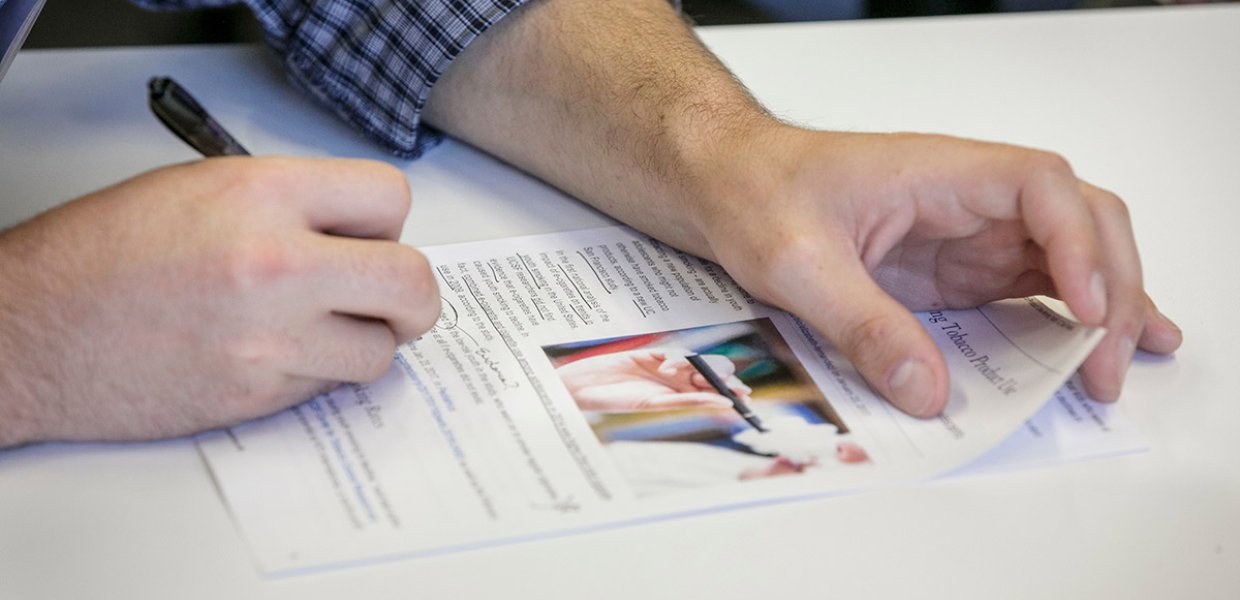The Center for Health Journalism at USC Annenberg has welcomed 23 journalists from around the nation to its annual National Fellowship this week for five days of intensive training that delves into coverage of health disparities and vulnerable children, youth and families, as viewed through a COVID-19 lens.
Each of the competitively chosen journalists will receive a reporting grant of $2,000 to $10,000 from the Center or its two specialty reporting funds — the Fund for Journalism on Child and Youth Well-Being and the Dennis A. Hunt Fund for Health Journalism — to assist them with undertaking ambitious explanatory or investigative reporting projects over the next six months. The Center also provides months of mentoring by veteran journalists to all program participants. Five of the journalists will receive additional grants and specialized mentoring on community engagement.
The National Fellowship provides five days of presentations and workshops in July. The program continues with monthly meetings through November. Because of the pandemic, the Fellowship is being held online via Zoom this year.
Journalist Linda Villarosa, a contributing writer for the New York Times magazine, kicked off the Fellowship with a keynote address titled “Getting Under the Skin: Telling Stories of Race, Health and Social Justice,” followed by a discussion of disparities and COVID-19 by Harvard scholar David R. Williams.
During the National Fellowship week, participating journalists are hearing from experts on childhood trauma, exploring the effects of the pandemic on Native Americans and learning about datasets that explore health and equity. They’re also receiving training in engaged journalism. We’re hosting intimate conversations with the director of Harvard’s Center on the Developing Child and providers and teen peer counselors at the Mount Sinai Adolescent Health Center in East Harlem.
The Center for Health Journalism invited a broader audience to participate in its National Fellowship discussion on “The Learning Gap” caused by remote learning during the pandemic. That archived session can be found here. Speakers include one of the nation’s foremost experts on preschool education, W. Steven Barnett, PhD, senior co-director of the National Institute for Early Education Research at Rutgers University; Joel E. Cisneros, LCSW, director of school mental health for the Los Angeles Unified School District, the second-largest public school district in the nation; and Tawnell D. Hobbs, national education reporter for the Wall Street Journal.
The 2020 National Fellowship is funded by generous grants from the Robert Wood Johnson Foundation, the Annie E. Casey Foundation and the Dennis A. Hunt Fund for Health Journalism. The Center also receives core support from The California Endowment.
“At the Robert Wood Johnson Foundation, we strive to build a culture of health so that everyone in America has a fair and just opportunity for health and well-being,” said Hope Woodhead, the foundation’s interim vice president, communications. “Now more than ever, there is an opportunity for transformational change that will make this nation stronger and more prepared to minimize the negative impacts on families and communities. We are proud to support the Center and their Fellows’ ongoing commitment to covering health disparities.”
“I have been very impressed with the journalists and the projects that the Center for Health Journalism has produced for news outlets across the country,” said Norris West, director of strategic communications at the Annie E. Casey Foundation. “The stories proposed by this year’s Fellows sound promising in taking on issues affecting children, youth and families in the middle of a pandemic and increased awareness of systemic racism. I look forward to the stories that result from the Fellowship.”
Michelle Levander, founding director of the USC Center for Health Journalism, said, “In this historic moment of crisis, investigative and explanatory journalism is more important than ever. The coronavirus pandemic has forced the nation to reckon with the systemic inequities built into our social welfare and health care policies. We are counting on the talented group of journalists in our 2020 National Fellowship to tell stories that need to be told and serve as a catalyst for change.”
Among the topics the Fellows will explore in their reporting projects are the effects of the pandemic on youth in the foster care system in New York City and on Indian reservations in North and South Dakota. Reporters will focus on how COVID-19 has affected the lives of residents of a single block in Newark, NJ, the Navajo Nation and San Francisco’s Chinatown; Pacific Islanders in both Hawaii and the mainland United States; immigrants in border communities in California and Texas; children in schools in impoverished neighborhoods of Chicago; and more.
Since 2005, the Center for Health Journalism has trained more than 1,000 journalists on the craft and content of health journalism, with an emphasis on health equity and the relationship between health and place. Previous Fellowship projects can be found here.
Here are the 2020 National Fellows:
Center for Health Journalism Grantees
Jessica Bedolla, Radio Bilingüe
Shannon Firth and Elizabeth Hlavinka, MedPage
Shiqiao Peng, SingTao Daily
Pedro Rojas, Univision
Claire Stremple, KHNS Local News and Alaska Energy Desk
Dennis Hunt Fund for Health Journalism Grantees
Angela Caputo, American Pubic Media
Dan Diamond, Politico
Valeria Fernandez, Radio Bilingüe
Anita Hofschneider, CivilBeat (Honolulu)
Spencer Kent, NJ Advance Media
Rachel Monahan, Willamette Week
Nathan O'Neal and Colton Shone, KOB 4 (Albuquerque)
Tim O'Shei, Buffalo News
Herbert White, The Charlotte Post
Dounan Alissa Zhu, Jackson Clarion-Ledger
Fund for Journalism on Child and Youth Well-being Grantees
Roxanna Asgarian, The Appeal
Neil Bedi, Tampa Bay Times
JacqueLynn Hatter, WFSU Public Media and Health News Florida
Sarah Karp, WBEZ (Chicago)
Dan Levin, The New York Times
Adreanna Rodriguez, Snap Judgment
